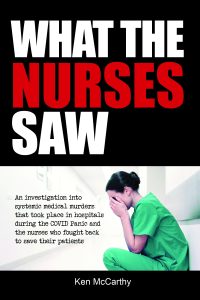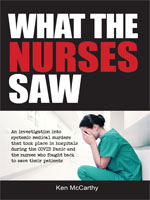Lifesaving information
Graith Care
Order What the Nurses Saw
space
Over the decades I’ve spent countless thousands of hours studying two related subjects: health and the corruption of our medical system.
Despite all that investment of time all I’ve ever been able to advise other people is:
1. Do everything you can to AVOID medical care, specifically take care of yourself and keep moving. Don’t eat junk (i.e. 95% of what is in the supermarket), and walk outdoors every day.
2. If you have to deal with the medical services industry (don’t call it “health care”, it is no such thing), get a second opinion and assume most of the people you deal with are less ethical and competent than a bad used car salesman.
Useful advice, but not terribly deep.
Now, FINALLY, I have something beyond the elusive obvious to offer:
Medical advocacy.
Have you ever heard of it?
Probably not.
Or if you have, you’ve learned the term from the in-house “patient advocates” some hospitals have. (Hint: They are worse than useless.)
So what is a medical advocate and why do you need one?
First, if you have a major tax problem with the IRS, would you attempt to sort it out on your own?
If you had a non-trivial legal problem, would you attempt to “wing” it in court before a judge and see how it goes?
Of course not. Nor should anyone deal with the medical system over a non-trivial issue without an experienced, informed advocate who can recognize and will not accept gaslighting, BS, incompetence, or fraud from the medical system.
How do you find such an advocate and what are some of the ways they can help you (including many that I never have thought of without having the opportunity to talk with an expert)?
The answer is here.
Make the time for this.
Statistically, you are going to need this someday, if not for yourself, for a loved one.







